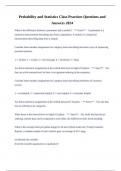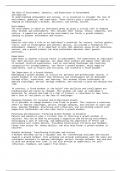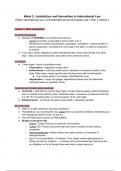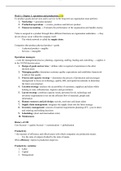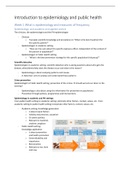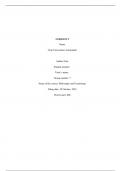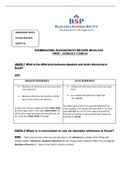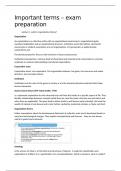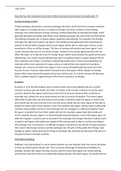Rational versus intuitive gatekeeping: escalation of
commitment in the front end of NPD
Ramon Eliëns, Katrin Eling, Sarah Gelper and Fred Langerak
In a firm many different ideas are formed to introduce a new product, alter an existing one, etc.,
however not all ideas are as fruitful as others. It is important that only ideas are turned into projects
that are fruitful and show potential, this is however not always the case. Gatekeepers need to keep
an eye on what is promising, and what does not show potential, and does need to be let go. In the
study they investigate the thinking style of the gatekeeper, whether they think rationally or
intuitively, and if one of these thinking styles can prevent escalation of commitment.
The choices a gatekeeper makes are very important as it determines the progress of a project, will it
be stopped, continued or slowed down. Sometimes a gatekeeper is very much involved in a project
and becomes biased towards the project, it can than happen than the choices they make are not
based on findings but on personal feelings towards the project. Is this the case than it is possible that
escalation of commitment will occur. This phenomenon happens when someone has already put
effort into a project, and therefore wants to continue, even though it may already be clear that the
project will not be successful anymore. As this escalation will cost much time and resources of a firm
it is important that it is stopped as early as possible.
As at the moment little research has been done about the influence of the different thinking styles by
gatekeepers this is examined by the authors. Both thinking styles should have their own pros and
cons and therefore it cannot be said what will be the most effective to stop escalation of
commitment. Think rationally might have as a benefit that it is not influenced by emotions and
therefore can focus fully on the performance of the NPD project. However, the information from
these project can still give wrong information because of which the decisions by the gatekeepers will
also be wrong. Thinking intuitively will help someone work on more complex projects and respond
faster to (new) incoming information. However, this thinking style is more influenced by emotions
and based on biases, this can create escalation of commitment to a project. Thus when being
rational, gatekeepers are aware of their decision process and can control it. This is a clear advantage
over intuitive thought, which is an unconscious process that is more difficult to control and explain.
The article they distinguish two theories that create escalation behaviour of gatekeepers:
1. Belief inertia distortion This refers to their prior beliefs and current beliefs about potential
of an NPD project. When new information about the project has come available, the
gatekeeper will inevitably check whether this information aligns with their initial belief. If the
information and the belief are not in line, this created dissonance, if the gatekeeper is more
inclined to stick with their beliefs this will create escalation.
2. Self-justification Gatekeepers are on the project from the beginning to the end, and make
repeated decisions during the process. This means that the gatekeeper is unwilling to admit

